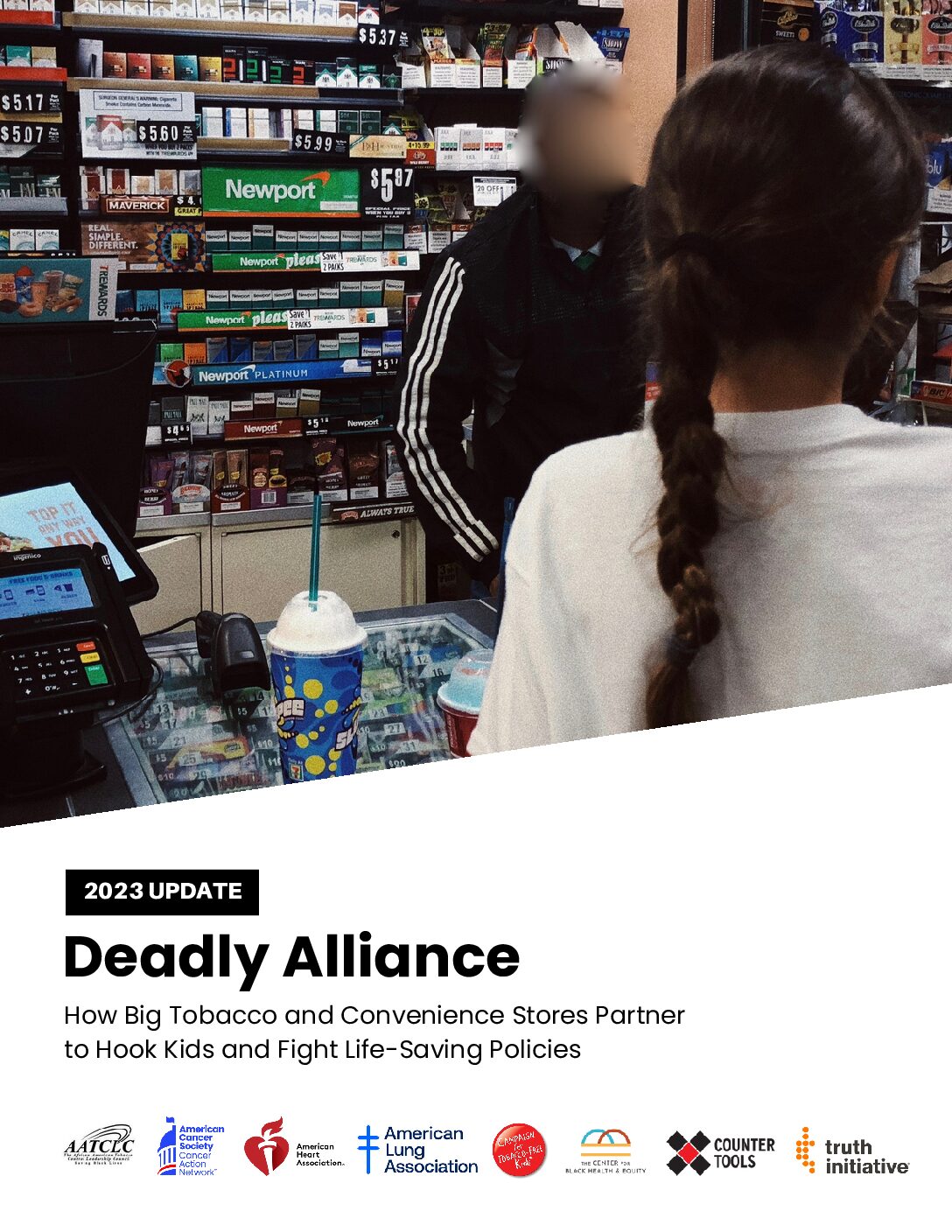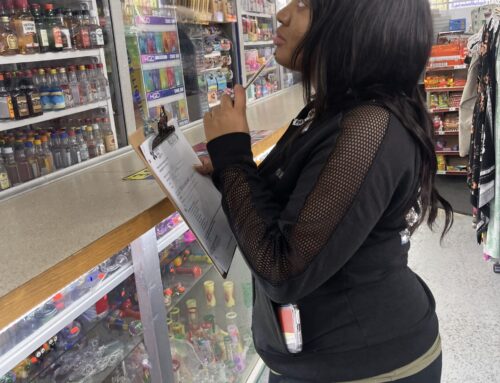Campaign for Tobacco-Free Kids has released an updated version of the report Deadly Alliance: How Big Tobacco and Convenience Stores Partner to Hook Kids and Fight Life-Saving Policies in partnership with the African American Tobacco Control Leadership Council (AATCLC), American Cancer Society Cancer Action Network, American Heart Association, American Lung Association, Center for Black Health & Equity, Counter Tools, and Truth Initiative.
As other forms of tobacco marketing have been restricted, tobacco companies now spend 97% of their marketing budget — $8.4 billion a year — to saturate convenience stores, gas stations, and other retail outlets with incentives and reminders to buy their addictive products. Tobacco companies pay stores to ensure that tobacco products are advertised heavily, displayed prominently, and priced cheaply to appeal to both kids and current tobacco users.
Convenience stores have become partners with — and front groups for — the tobacco industry in fighting restrictions on the sale of flavored tobacco products, higher tobacco taxes, and other public policies proven to reduce tobacco use.
Originally released in 2012, this 2023 update includes:
- The latest data from the Federal Trade Commission reports on marketing expenditures by the top cigarette, smokeless, and e-cigarette companies, which continue to show high proportions of spending at the point-of-sale
- Updated evidence of point-of-sale marketing to youth and communities of color
- Examples of the widespread availability of kid-friendly flavored tobacco products at the point-of-sale
- New examples of the tobacco and convenience store industries working together to oppose effective tobacco control policies
- A description of the corrective statements – court-ordered signs posted at the point of sale by the tobacco companies – resulting from the 2006 landmark ruling that tobacco companies had lied to the public for decades
- New research on the impact of tobacco control policies on convenience stores
This report can be used at the state and local level to draw attention to the tobacco problem in general, but particularly to the role that convenience stores and other retailers play in it and the way that tobacco companies use them to market their products and oppose policy change. If you are working on funding for tobacco prevention, tobacco taxes, prohibiting flavored tobacco products or point-of-sale issues, the report can be useful in drawing attention to the problem and the solutions.



